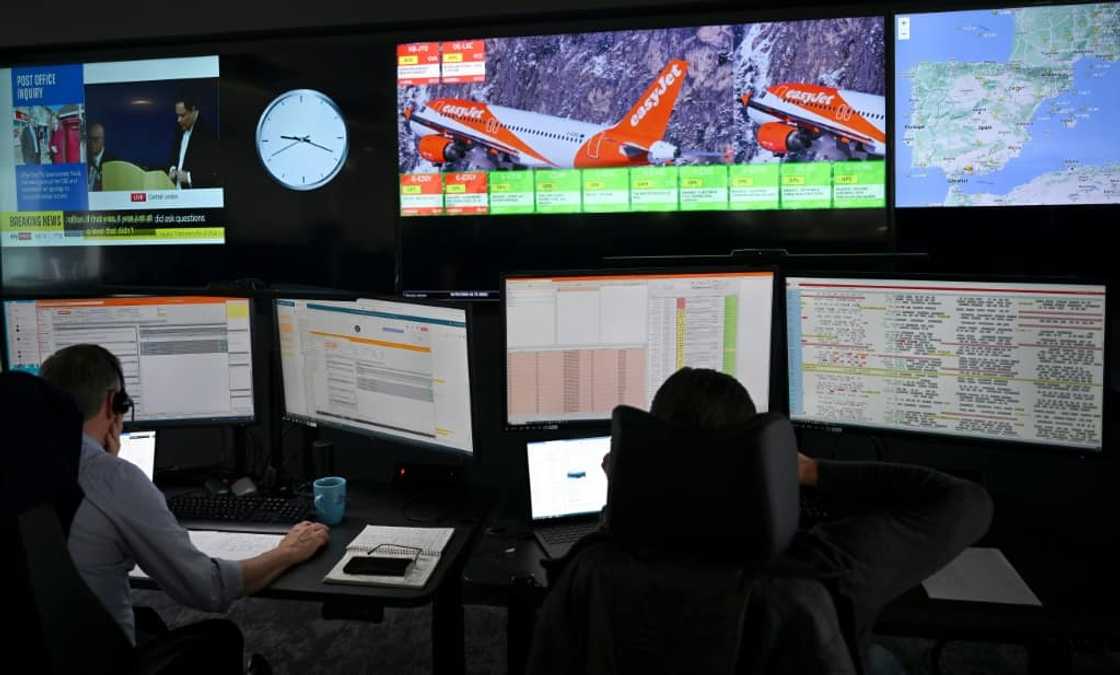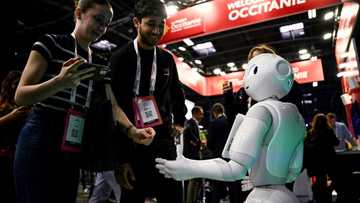Easyjet, eyeing record summer, boosts nerve centre with AI

Source: AFP
A cutting-edge facility featuring artificial intelligence (AI) -- Easyjet's new control centre is tasked with handling about 2,000 mostly-European flights per day as the British airline eyes high summer demand.
The Integrated Control Centre (ICC), close to Luton airport north of London, is central to Easyjet operations, from urgent flight changes to monitoring a passenger aircraft's health mid-air.
As well as analysing engines in real time, technicians can also see if a toilet needs fixing.
As the aviation sector recovers following Covid lockdowns that grounded planes and caused huge job losses, Easyjet has been on a big recruitment drive.
The number of staff overseeing control centre operations has more than doubled in two years to 266 people working around the clock, their eyes glued to large curved screens.
300,000 passengers daily
"It's going to be our busiest summer since Covid," Easyjet's director of network control, Gill Baudot, told journalists given a tour of the new centre overlooking the runway on which the company's orange planes take off and land.
"Over the next few months we'll be flying... 300,000 passengers a day," she added, as an Easyjet plane with its muffled roar flies over the centre before quickly disappearing.
Should a plane fail to fly, for reasons ranging from challenging weather to technical difficulties and strikes, the ICC steps in to amend logistics.
To aid such urgent changes, Easyjet is using an AI tool akin to ChatGPT.
It is helping staff to decide on situations including how best to re-route aircraft and reassign crew.
Easyjet manages more than 340 passenger planes, of which 14 are backup aircraft based across Europe.
"We've... been investing heavily in technology, automation and artificial intelligence," said Baudot.
"Right now we think the human being will still make the (final) decision."
Baudot noted that staff "were out of practice" following Covid lockdowns -- an issue experienced by the sector as a whole.
With passenger demand recovering strongly since the pandemic, Easyjet and its rivals, notably Ryanair, have had to get up to speed by recruiting massively across all roles.
'Data potential'
Piloting Easyjet through Covid has been its chief executive Johan Lundgren, who recently announced that he would step down at the start of 2025 after seven years.
"At Easyjet, we saw the potential early on for data to improve customer experience and operational efficiency which could help us provide a better flying experience for our customers, crew and pilots," Lundgren said in a statement accompanying the media event.
"While you can't always see it, the technology is already hard at work in the air and on the ground."
He said it can help "predict exactly what food and drink we need for certain routes while minimising food waste, aiding predictive maintenance decisions and helping us to ensure we have the right aircraft on the right routes to best match demand".
At the ICC, Mark Garrett, in charge of customer disruption at Easyjet, is monitoring flights.
Should a flight hit problems, a notification is sent to the phones of affected passengers. Flights with a sizable number of children or transporting a group trip may be prioritised.
"It's not always the flights with (the) least people" that get disrupted, he added.
PAY ATTENTION: Сheck out news that is picked exactly for YOU - click on “Recommended for you” and enjoy!
Source: AFP




